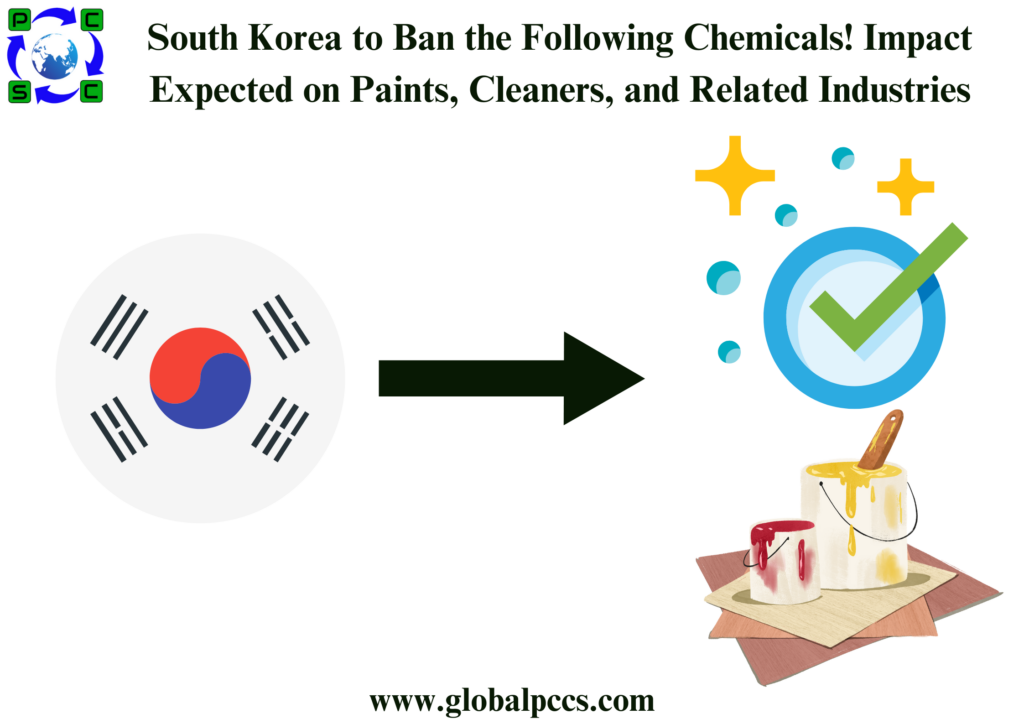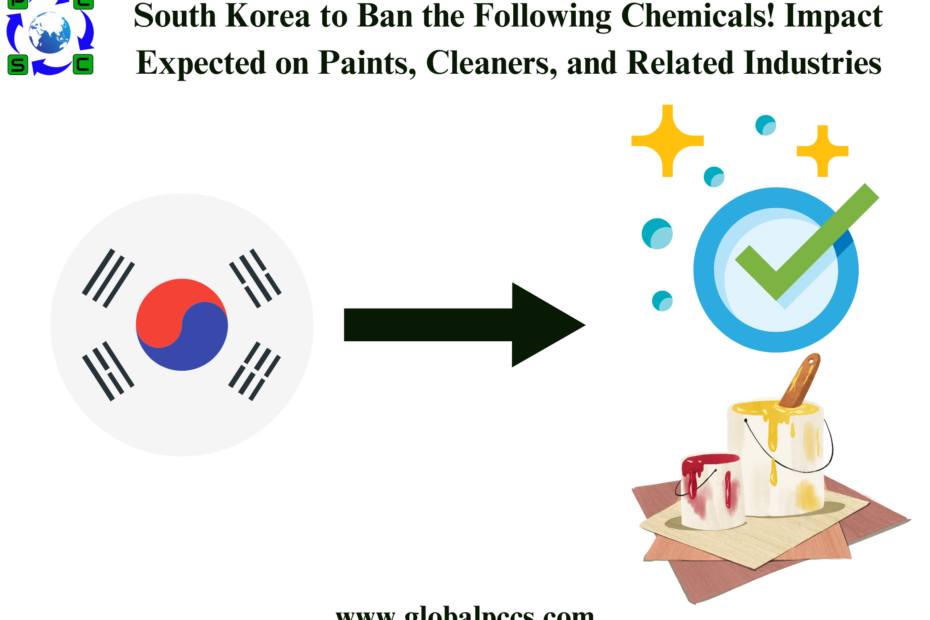 The Ministry of Environment of South Korea recently submitted a notification to the World Trade Organization (WTO) regarding the revision of the Designation of Restricted Substance and Prohibited Substance. This revision aims to strengthen the restrictions on the use of lead and its compounds as well as methylene chloride and its mixtures, based on the hazard assessment under the Chemical Substances Registration and Evaluation Act and international regulatory trends, to protect human health and safety. WTO member countries can comment on this revision before January 13, 2025.
The Ministry of Environment of South Korea recently submitted a notification to the World Trade Organization (WTO) regarding the revision of the Designation of Restricted Substance and Prohibited Substance. This revision aims to strengthen the restrictions on the use of lead and its compounds as well as methylene chloride and its mixtures, based on the hazard assessment under the Chemical Substances Registration and Evaluation Act and international regulatory trends, to protect human health and safety. WTO member countries can comment on this revision before January 13, 2025.
Specific Revisions
Lead and its compounds and mixtures containing more than 0.009% lead (KE NO. 06-5-8)
Restriction: The use of lead and its compounds, as well as mixtures containing more than 0.009% lead, is prohibited in the manufacture, import, sale, storage, transportation, and use in paints.
Exceptions: The manufacture, maintenance, and upkeep of aircraft and their parts, as well as related activities for military supplies, are not subject to this restriction.
New restrictions on methylene chloride and mixtures containing more than 0.1% methylene chloride (KE NO. 06-5-15)
Restriction: The use of methylene chloride and mixtures containing more than 0.1% methylene chloride is prohibited in the manufacture, import, sale, storage, transportation, and use in household cleaners, sprays, and paint removers for home, construction, and furniture.
Additionally, the notification lists the specific chemical names and CAS numbers under the unique number 06-5-8 for lead and its compounds and mixtures containing more than 0.009% lead, including:
-
Lead
-
C.I. Pigment red 104; Lead chromate molybdate sulfate red
-
C.I. Pigment yellow 34; Lead sulfochromate yellow
-
Dioxobis(stearato)trilead; Bis(octadecanoato)dioxotrilead
-
Fatty acids, C16-18, lead salt
-
Lead 2,4,6-trinitroresorcinoxide
-
Lead 2-ethylhexanoate
-
Lead acetate
-
Lead acetate
-
Lead azide
-
Lead bis(tetrafluoroborate)
-
Lead chromate (PbCrO4)
-
Lead dinitrate
-
Lead monoxide
-
Lead oxide (Orange lead)
-
Lead oxide phosphonate
-
Lead oxide sulfate
-
Lead stearate
-
Lead sulfate, tetrabasic
-
Pentalead tetraoxide sulfate
-
Other lead compounds
-
Mixtures containing more than 0.009% of the above chemicals
These regulations will be implemented from January 1, 2026, in accordance with the Chemical Substances Control Act. This measure aims to raise environmental standards and public health protection both domestically and internationally, reflecting South Korea’s proactive stance in global chemical management.
Insights
The industries that may be impacted by the restrictions include the paint and coatings sector, which must modify production formulas and find lead-free substitutes; and the household cleaner, spray, and paint remover sectors, which must modify product formulas and find substitutes for methylene chloride in furniture, construction, and residential settings.
To ensure continued compliance and the sustainable growth of their firms, organizations must respond to these limits by taking proactive measures, such as developing new materials, improving supply chain management, and conducting product conformity evaluations.
Stay ahead in the world of sustainability compliance with Global PCCS, where expert insights meet the latest regulations. Unlock a future where compliance drives sustainability and your business thrives in a greener, regulated landscape.








 Authorised IMDS & CDX Training & Consulting partner for
Authorised IMDS & CDX Training & Consulting partner for






